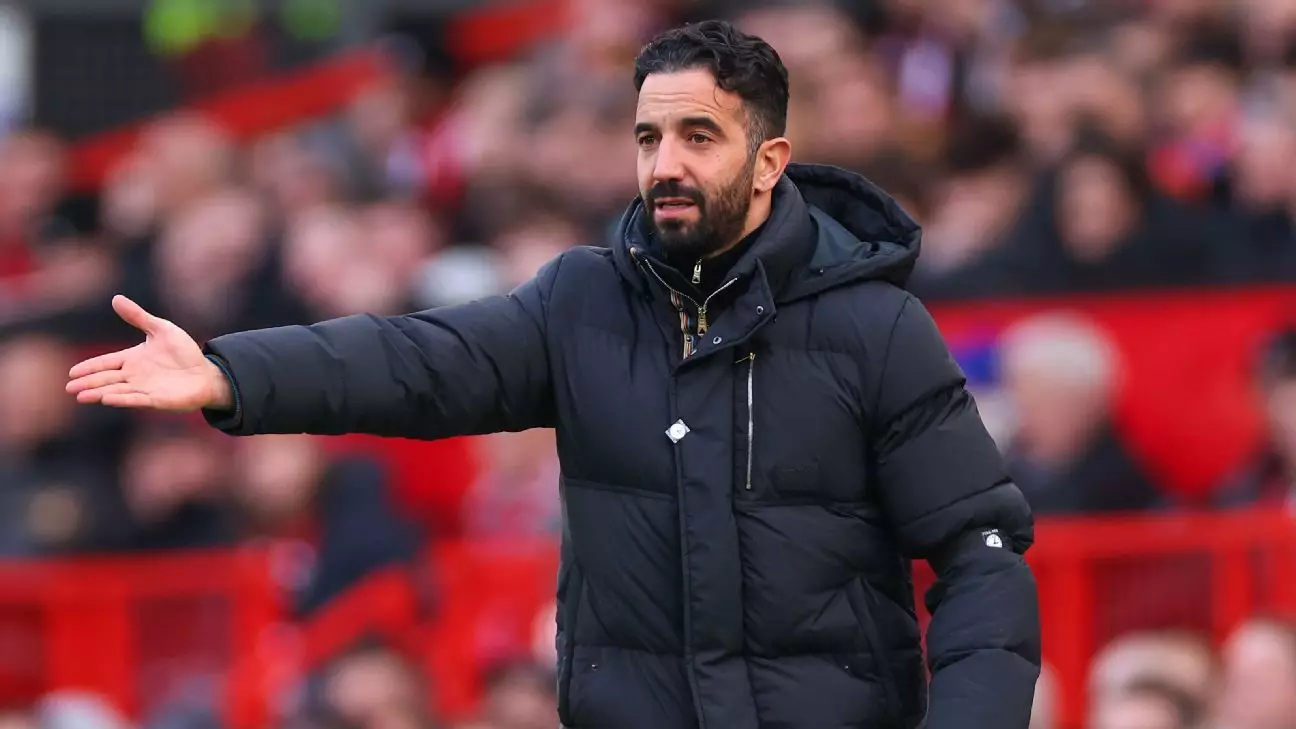In an era where football clubs are grappling with economic challenges, Manchester United finds itself at a critical juncture. Manager Ruben Amorim recently highlighted the stark financial realities that necessitate a careful reassessment of player management and squad depth. With pressures mounting behind the scenes, Amorim’s comments reveal the harsh truths of the transfer market—before Manchester United can think of strengthening their ranks, they must first offload certain players. This reflects not just a tactical approach but a broader economic necessity driven by stringent Financial Fair Play regulations.
Amorim’s acknowledgment of recent loan moves, including players like Marcus Rashford and Antony, underscores a strategic pivot towards youth and potential. While the excitement surrounding new talents like Patrick Dorgu and Ayden Heaven is palpable, the emphasis on cultivating a younger squad reveals a longer-term vision amidst immediate financial imperatives. The manager emphasizes that although these young players possess talent, they lack the established core needed to navigate the pressures of such a historic club. This suggests a growing realization that a solid foundational group is essential for fostering young talent in high-stakes environments.
The ramifications of economic pressures extend beyond player transactions; they also impact club staff. Reports of ongoing job cuts paint a sobering picture of life at Old Trafford, one that has seen more than 250 redundancies since Sir Jim Ratcliffe took over football operations. While Amorim famously noted that these financial strains are not new, the urgency signals a need for both managerial and structural changes within the club. As staff cuts take a toll on morale, the focus shifts back to the performance on the pitch, highlighting the delicate balance between off-field management and on-field success.
Amorim’s candid reflections on the pressures facing players further unravel the complexities of coaching at a club as storied as Manchester United. The necessity to juggle expectations while simultaneously reshaping the squad is no small feat. With young players like Dorgu under pressure, Amorim pointedly remarked on the importance of having a strong supporting cast to alleviate the weight of expectation. Without this support, the transition becomes more daunting, as seen in the nervous performances of fresh recruits adapting to the rigorous demands of the Premier League.
Despite the challenges, Amorim remains forward-looking, focusing on imminent matches while navigating the complexities of squad dynamics. His commitment to fostering a talented team remains unwavering, even if the path is fraught with obstacles. The challenge ahead encompasses not only financial prudence but also creating an encouraging environment for both budding talents and seasoned players. As Manchester United continues to redefine its identity, the club’s ability to adapt in these turbulent times may very well shape its future successes on and off the pitch.

